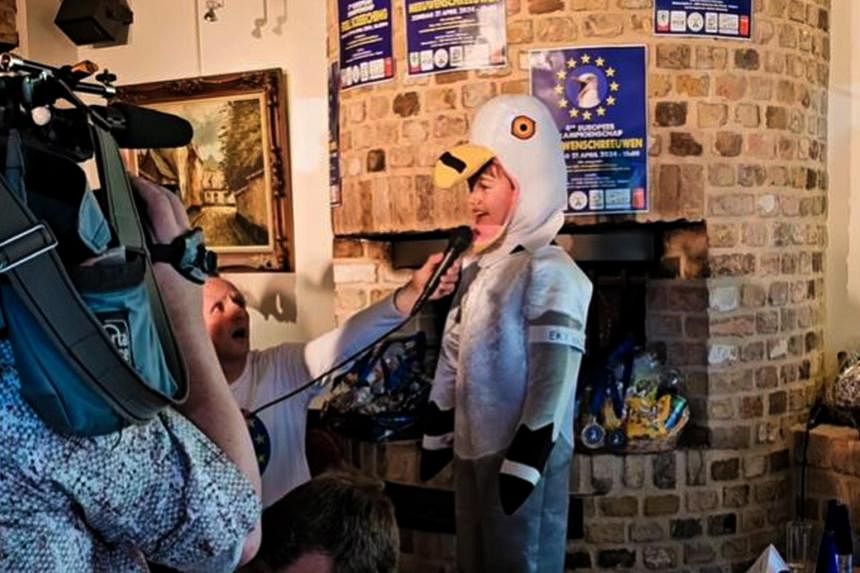A nine-year-old British boy is officially Europe’s best seagull impressionist.
Cooper Wallace, who competed in a full gull costume, was the top scorer at the European Seagull Screeching Championships held in Belgium on April 21.
He said he started imitating the seagulls after being nipped by one when he was savouring a tuna sandwich at the beach.
He told British newspaper The Times that he wanted to make the noise to remember that he was bitten by one.
“I feel like they are a really nice animal, I like them because of their noise,” he also told BBC.
He added that he wanted to become “Seagull Boy”, like when Peter Parker became Spider-Man after he was bitten by a spider.
“Sometimes they can be a bit scary, and I’m still a bit wary of eating at the beach, so that’s why I eat in a small tent. The last meal I had at the beach was an ice cream.”
His mother told the BBC that she was initially annoyed when Cooper imitated the seagulls, but she later realised that he was good at it.
“People would start to turn around and look for the seagull,” she said.
That was how the family found out about the competition: A stranger had overheard Cooper’s impersonation of a seagull at a playground and suggested that the boy compete.
This event was the fourth edition of the competition, which was organised by Belgium’s Flanders Marine Institute. It aims to stand up for seagulls and polish the image of the protected coastal birds.
Cooper scored 92 points out of 100, not just winning the juvenile category but also scoring the highest points in the whole competition. The other categories were catered for adults and colonies, in which groups of two to five people came together to perform seagull impressions.
Marine biologist Jan Seys, who was one of the judges, told the BBC that each judge awarded up to 20 points, of which five points were for how the competitors dressed and behaved, while the remaining 15 points were awarded for how they mimicked the call of a seagull. Attention was also paid to the timbre, rhythm and variation of the sounds each participant made.
Dr Seys said Cooper could imitate several different types of gull calls realistically.
“In fact, for me, he was not only the best of the young participants, but of all those who took part in the championship,” he said.
Beyond fun and entertainment, the competition’s purpose is to create sympathy for the seagulls, which are an essential element of the coasts but are often vilified as “rats of the sea”, he added.
“Also, we conceive of the judging as serious business, with a jury composed of professionals experienced in gull research and/or policy.”


